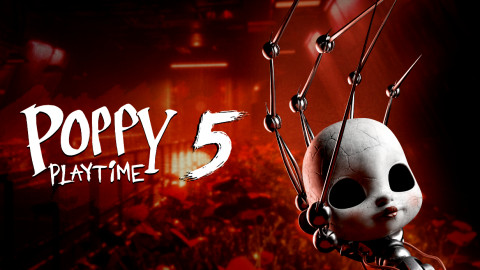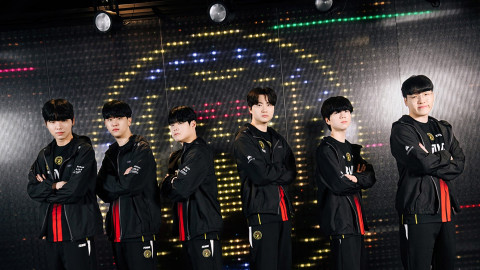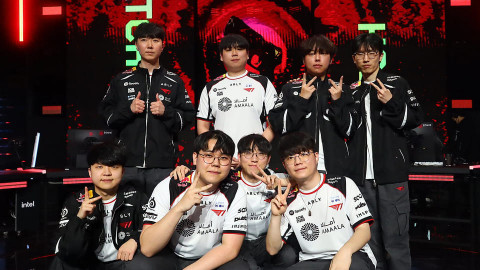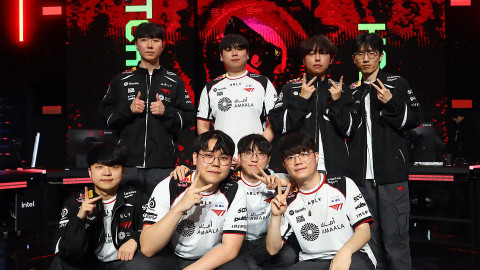
Back in June of this year, I compared Epic Game's esports announcement to that of the Blizzard's Overwatch League and noted the distinct differences in tone, feel, and priorities. I wrote about how Epic doesn't seem concerned with the "serious" side of esports and, on the contrary, they place fun above all else:
"Overwatch has channeled all the trimming and feel of "the big leagues" by highlighting regional teams and encouraging rivalries that resemble traditional sports franchises. Their players have to live up to a professional standard in both their on-stage and off-stage behavior. Simply put, the Overwatch League is less about fun and more about accomplishment, greatness, and esports glory.
But, the Fortnite World Cup doesn't see to channel any of that "elite pro-gamer" feeling with this announcement. Instead, Epic relies on unusually casual language -- as if it is normal to invest $100 million dollars just so everyone can have a good time. If Fortnite ever creates a league of their own, will it share this same appeal? It seems likely.
Considering Fortnite's wacky aesthetic and non-serious tone, it is possible that a not-so-serious esports experience is in the titles best interest."
Since then, it's no secret that Fortnite has received criticism from the esports community. Whether it's obviously broken mechanics, laggy online events, or forcing players at the TwitchCon Fall Skirmish to all use the same PC peripherals (an esports 101 mistake), Epic games have routinely proven that it can't seem to figure this whole esports thing out.
Considering how incredibly profitable Fortnite is, the simple mistakes they were making with regards to esports was puzzling to me. I knew Fortnite esports would be different, but I only imagined more show matches, more streamer events, and perhaps an increased priority on local tournaments for the average Fortnite player. In hindsight, I could never have guessed that Epic's casual tone was actually hinting at their full-blown rejection of past esports practices.
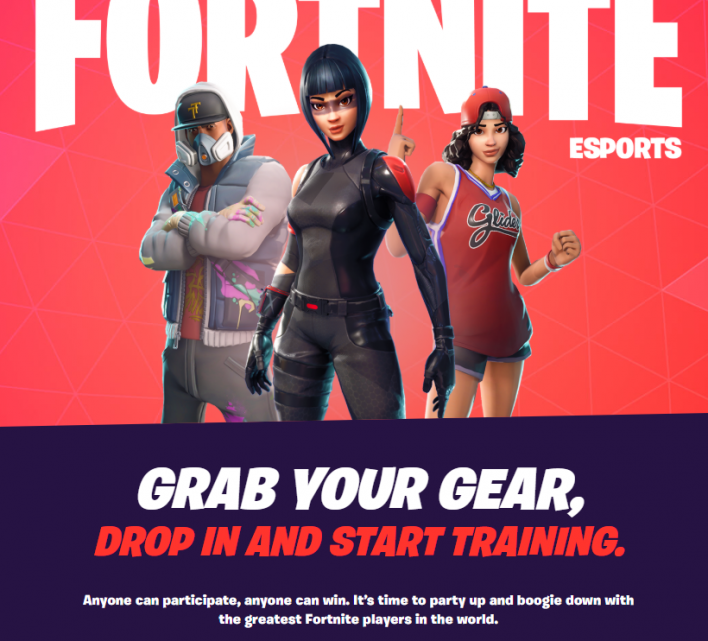
The latest "mistake"
The most recent buzz about the routine failure of Fortnite esports has to do with the strange decision to introduce two radically new mechanics into the game just a day before the $1M Winter Royale. The plane was around for about a week before the tournament with the sword being introduced just a day before. Anyone familiar with esports couldn't have been surprised at the public reaction from esports pundits, streamers, and pro-players:

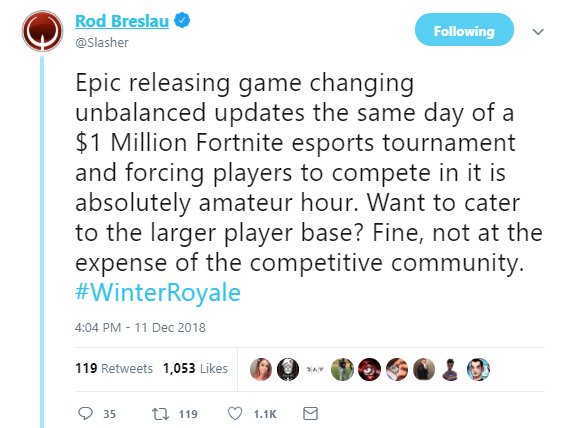
The new sword and planes are not only super powerful, but they completely undo any amount of training or preparation by tournament participants. Viewers may enjoy watching the players adapt (to be fair, it does reward quick thinking players in a way that traditional tournament precedent never has), but such last minute changes heavily disrupt the idea that tournaments are about finding the best, most skilled player.
The tournament became about finding the player who discovered how powerful the new mechanics were first.
An Entertaining Product
Rod "Slasher" Breslau has perhaps been the most consistently critical of Epic's bewildering decision to ignore basic esports practices. A pundit with opinions that are undeniably shaped by his veteran esports status and competitive background, Slasher represents an esports community urging corporations to maintain legitimate competitive environments. In light of the swords-and-planes debacle, he recently shared on Twitter the following e-mail Epic sent to Fortnite competitors before the previously mentioned TwitchCon Fall Skirmish.
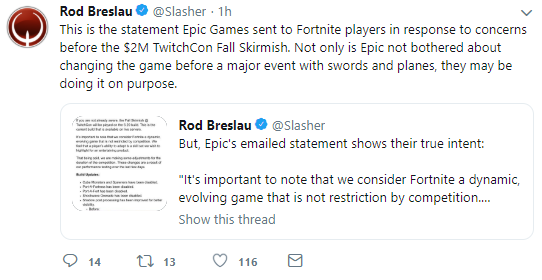

The biggest takeaways from this e-mail are two big phrases: "Entertaining product" and "Not restricted by competition". Everyone already knew that Epic leaned heavily on the endorsement of big name streamers and geek celebrities and cared less about the opinion of competitive players. However, this insight into how they communicate with their esports participants provides the necessary context to understand their seemingly clumsy dive into the world of esports.
Entertaining moments is the name of the game and Fortnite esports, by their own admission, is not about crowning a champion and rewarding raw skill above everything else. Epic games are looking to create large spectacles to highlights the most marketable aspects of their game -- it seems esports just so happens to be the best way to do so.
It looks like the esports community is slowly beginning to realize this:


Even Ninja, the defacto face of Fortnite who's explosion in public exposure has become meme-worthy, has taken issue with the Epic's habit of disregarding competitive integrity for flashy new features aimed at creating the largest spectacle possible.

Before this tweet (and before his elimination) Ninja was quoted on his stream expressing his disappointment in Epic's decision to add these last-minute game updates before a major tournament
"..to add the sword and to have these planes, in this tournament, it's just not what I qualified for."
Epic games have every right to produce Fortnite esports in whatever manner they please. However, it is unclear how long esports influencers and pro-players will play along. Epic is either ushering in a new wave of "spectacle first" esports that sacrifice competitive value for audience entertainment or seriously squandering the potential to solidify Fortnite as a serious esport.
-

Warcraft 3 is my one true love and I will challenge anyone to a game of Super Smash Brothers Melee.
Sort by:
Comments :0

